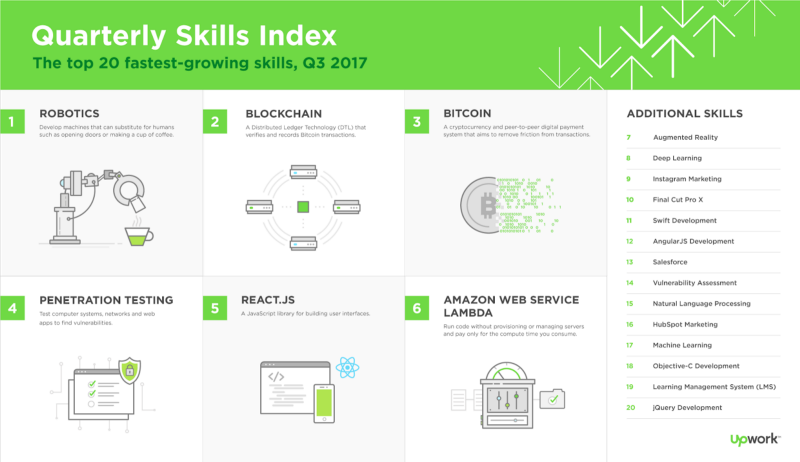Why You Should Be Developing dApps

The Internet is built upon the intersection of thousands of different types of technologies, protocols, and software. The Blockchain is one such addition to a long line of achievements in the quest for better technology. With blockchains, we were introduced to the decentralized application (or dApp) as distinct from traditional applications.
To quickly summarize, a dApp may be defined as an application that:
- Is open source, with autonomous features, or fully autonomous.
- Uses a decentralized public ledger to store data.
- May function on a token model (though not necessarily) that isnot controlled by an individual entity but by the network.
- Generates tokens (if used) according to a standard cryptographic algorithm (e.g. the Proof of Work algorithm used by Bitcoin).
- Is modified only through user consensus.
(Note that this is a simplification and you can learn more by reading the dApp whitepaper).
With these simple rules, dApps have provided solutions where traditional applications have failed. It’s no wonder why the market for the development of dApps is currently on the rise.
While it might be true that the author of this article knows nothing more technical than a few fancy Linux commands, the reasons why I strongly encourage anyone who enjoys code and solving problems to dive right into dApp and blockchain development are many.
Here are just some of them:
1. Decentralization is like fire:
And it’s rapidly engulfing the Internet. If we take the proliferation of apps on the Google Play Store and Apple App Store as an analogy, then there is reason to believe that the market for dApp development will balloon in the near future.
Earlier this month, an article on Computer World claimed Blockchain development to be the “hottest new skill in the freelance job market”. A recent Upwork blog post mentioned Blockchain and Bitcoin development as two of their top-20 fastest growing skills with an increase in demand by more than 200 percent in the last year alone.
[Image courtesy of Upwork.com]
2. The scope for the monetization of dApps is huge:
Even if you’re not into freelancing, developing your own dApp could entail a profitable future. Traditional applications use advertising or freemium models, but there are a couple of tried-and-tested paths towards successful monetization in the dApp world as well:
a. Transaction Fees:
dApps that use tokens to perform actions can leverage transaction fees as a way to generate income. Even a single percent in fees may go a long way in providing a healthy source of revenue.
Moon, Inc., a game where users purchase animals in shiny space suits to produce cookies — the game’s version of tokens, saw almost 300 ETH being transferred over the course of last week. Doing the math, it’s easy to see how even marginal fees on transactions can pull in a hefty profit.
b. Crowdsale or ICO:
ICOs, or Initial Coin Offerings, are one of the most popular methods developers have used to fund their projects. Tokens are used to back the ICO, meaning investors get tokens in return for their money. The value of your tokens will depend on the functionality your project has to offer. In other words, the better the project and the greater its impact, and the more people who will want to invest.
3. Get Paid to Contribute:
Even if you choose not to go down the path of development, you can make contributions to existing projects in exchange for tokens. Since dApps are open source, the code is free to be modified and changed.
Smart contracts allow users to carry out automated transactions such as paying someone in return for services performed such as bug fixing, modifying code, or even adding new features.
Sounds like fiction? Gitcoin let’s you do just that.
So what’s stopping you?
There are many resources online to learn blockchain and dApp development:
Udemy offers a certificate course on programming dApp with Solidity, a specialized programming language suited for this exact purpose.
Zastrin teaches users the basics of programming dApps on the Ethereum blockchain with a focus on practical, real-world applications.
CryptoZombies offers interactive coding lessons that teach you how to code Ethereum dApps (and eventually build a Zombie Army).
Meet Dale, the dapper dapp developer who just built his first decentralized zombie army.
But learning is not everything…
Once you have all the knowledge you need at your disposal, if you do decide to follow the path of developing your own dApp, there is a simple way to tread the difficult path of developing, funding, and marketing your application.
For this very purpose we’re developing BlockHub, a platform that provides the tools and resources necessary for application developers to easily create and promote their projects.
Blockhub Launchpad is being developed with the express reason to address the lack of available tools out there that can simplify the creation and promotion of decentralized applications. The future of blockchain technology, after all, is in the hands of its developers. We could certainly use a few more.
Participate now if you want to secure HBX
Secure HBX

Find us on these social media channels